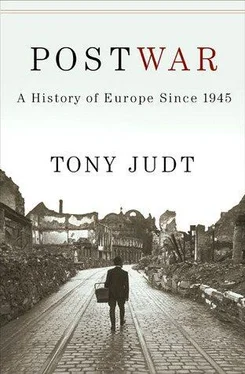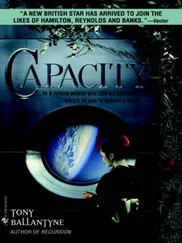A handful of individual football stars—not necessarily the most talented, but those boasting good looks, beautiful wives and an animated private life—assumed a role in European public life and popular newspapers hitherto reserved for movie starlets or minor royalty. When David Beckham (an English player of moderate technical gifts but an unsurpassed talent for self-promotion) moved from Manchester United to Real Madrid in 2003, it made headline television news in every member-state of the European Union. Beckham’s embarrassing performance at the European Football Championships in Portugal the following year—the England captain missed two penalties, hastening his country’s ignominious early departure—did little to dampen the enthusiasm of his fans.
More revealingly, the England team’s departure from the competition had no discernible impact upon the UK television audience for the remaining games between teams from small countries (Portugal, the Netherlands, Greece and the Czech Republic) in which British fans had no stake. Despite the heightened fervor of international games, with colours flying, lions rampant and competitive anthem-singing, the common obsession with watching the game—any game—outweighed most partisan loyalties. [406]At peak, the BBC broadcasts of the matches played in Portugal that summer attracted twenty five million viewers in the UK alone. The official ‘Euro.com’ website for the competition registered forty million visits and half a billion page views over the course of the games.
Football was well adapted to its new-found popularity. It was an unmistakably egalitarian pastime. Requiring no equipment beyond a ball of some sort, football could be played anywhere by anyone—unlike tennis or swimming or athletics, which required a certain level of income or else the sort of public facilities not widely available in many European countries. There was no advantage to being unusually tall or burly—quite the contrary—and the game was not especially dangerous. As a job, football had long been a low-paid alternative for working-class boys in industrial towns; now it was a path into the upper reaches of suburban prosperity and more besides.
Moreover, however talented and popular they might be, individual footballers were of necessity part of their team. They could not readily be transubstantiated, like the ever-unsuccessful French cyclist Raymond Poulidor, into symbols of unrequited national endeavour. Football was also far too straightforward to be turned to the metaphorical and quasi-metaphysical uses to which baseball in America was sometimes put. And the game was open to Everyman (and, increasingly, Everywoman) in a way that was no longer true of the professional team sports played in North America, for example. Football, in short, was a very European sort of game.
As an object of European public attention, football, it was sometimes suggested, now substituted not just for war but also for politics. It certainly occupied far more space in newspapers; and politicians everywhere were careful to pay their respects to sporting heroes and demonstrate due familiarity with their accomplishments. But then politics in Europe had lost its own competitive edge: the disappearance of the old master narratives (Socialism vs Capitalism; proletarians vs owners; imperialists vs revolutionaries) did not mean that particular issues of public policy no longer mobilized or divided public opinion. But it did make it harder to describe political choices and allegiance in traditional party terms.
The old political extremes—far Left, far Right—were now frequently united: typically in their opposition to foreigners and their shared fear of European integration. Anti-capitalism—recast somewhat implausibly as anti-globalization, as though strictly domestic capitalism were somehow a different and less offensive breed—was attractive to nativist reactionaries and internationalist radicals alike. As for the political mainstream, the old differences between parties of center-Right and center-Left had largely evaporated. On a broad range of contemporary issues, Swedish Social Democrats and French neo-Gaullists, for example, might well have more in common with each other than with their respective ideological forebears. The political topography of Europe had altered dramatically over the previous two decades. Although it remained conventional to think in terms of ‘Left’ and ‘Right’, what they distinguished was unclear.
The old-style political party was one victim of these changes, with declining membership and falling turnout at the polls, as we have seen. Another casualty was an almost equally venerable European institution, the public intellectual. The previous fin-de-siècle had seen the first flowering of politically engaged intellectuals—in Vienna, in Berlin, in Budapest, but above all in Paris: men like Theodor Herzl, Karl Kraus or Léon Blum. On the European scene a century later their would-be successors were, if not entirely absent, then increasingly marginal.
There were various reasons for the demise of the continental intellectual (the species had always been uncommon in Britain, its isolated occurrence usually the by-product of exile, as in the case of Arthur Koestler or Isaiah Berlin). In central and eastern Europe, the issues which had once mobilized the political intelligentsia—Marxism, totalitarianism, human rights or the economics of transition—now elicited a bored and indifferent response from younger generations. Ageing moralists like Havel—or one-time political heroes like Michnik—were irrevocably associated with a past which few cared to revisit. What Czesław Miłosz had once described as the ‘irritation of East European intellectuals’ at the American obsession with purely material products was now increasingly directed at their fellow citizens.
In western Europe, the exhortatory function of the intellectual had not altogether disappeared—readers of the German or French quality press were still periodically subjected to incandescent political sermons from Günter Grass or Régis Debray—but it had lost its object. There were many particular sins against which public moralists might rail, but no general goal or ideal in whose name to mobilize their followers. Fascism, Communism and war had been expunged from the continent, together with censorship and the death penalty. Abortion and contraception were almost universally available, homosexuality freely permitted and openly practiced. The depredations of the unrestricted capitalist market, whether global or local, continued to attract intellectual fire everywhere; but in the absence of a self-confident anti-capitalist counter-project, this was a debate better suited to think tanks than philosophers.
The only remaining arena in which European intellectuals could still combine moral earnestness with universal policy prescriptions was in foreign affairs, free of the messy compromises of domestic policy-making and where issues of right and wrong, life and death were still very much in play. During the Yugoslav wars intellectuals from west and east Europe strenuously took up the cudgels. Some, like Alain Finkielkraut in Paris, identified body and soul with the Croat cause. A few— notably in France and Austria—condemned Western intervention as an American-led affront to Serbian autonomy, based (as they asserted) on exaggerated or even falsified reports of non-existent crimes. Most pressed the case for intervention in Bosnia or Kosovo on general principles, extending the rights-based arguments first espoused twenty years before and emphasizing the genocidal practices of the Serbian forces.
But even Yugoslavia, for all its urgency, could not return intellectuals to the centre of public life. Bernard-Henri Lévy in Paris could get invited to the Elysée Palace for consultations with the President, much as Tony Blair would occasionally host retreats with favoured British journalists and other literary courtiers. But these carefully staged exercises in political image-building had no impact on policy: neither France nor Britain nor any of their allies was moved by intellectual pressure to alter their calculations in any way. Nor could publicly engaged intellectuals play their once-crucial role in mobilizing opinion at large, as became clear in the course of the Atlantic rift of 2003.
Читать дальше












